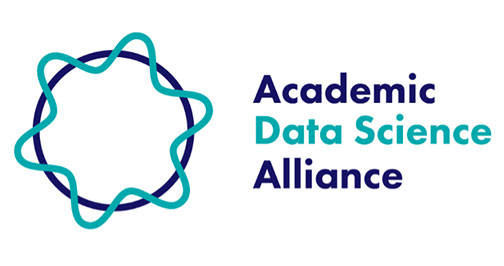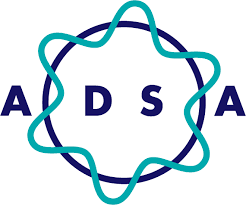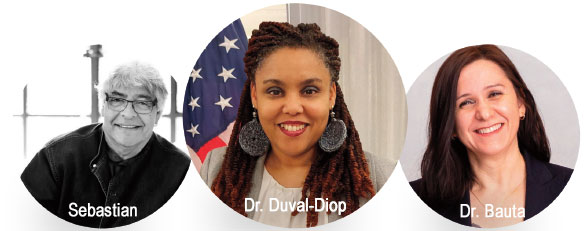Posted on September 26, 2023 by Christopher Reichert

ADSA
The Academic Data Science Alliance (ADSA) will be hosting its first in-person Annual Meeting at UTSA’s San Pedro I from October 24-27. ADSA is an organization of data science practitioners, educators, and leaders dedicated to supporting and advocating for professionals in the field. The ADSA Annual Meeting is one of the group’s two flagship events, but 2023 will mark the first year that the conference has been held in person. In a nod to San Antonio’s reputation for biomedicine and public art, this year’s conference theme is “Health, Well-Being, and the Arts.”
Founded in 2019 and made possible by the Gordon & Betty Moore Foundation and the Alfred P. Sloan Foundation, ADSA was envisioned as an expansion of the work done by the Moore-Sloan Data Science Environments Partnership (MSDSE). But while the MSDSE centered around three participating universities, ASDA’s sights are set at an international level, says founder and Executive Director Micaela Parker, Ph.D.
 “We are the professional society for data science that’s not attached to computer science or statistics or some other discipline,” she said. “We try to bridge all of those disciplines and I think that makes our vision for what data science is more inclusive, because we truly believe that data science should be built by and for all disciplines.”
“We are the professional society for data science that’s not attached to computer science or statistics or some other discipline,” she said. “We try to bridge all of those disciplines and I think that makes our vision for what data science is more inclusive, because we truly believe that data science should be built by and for all disciplines.”
This sense of interdisciplinary cooperation is where the “academic” concept of the Academic Data Science Alliance comes into focus.
“Academic data science and data science in academia are not really the same thing, and I’d like to think of us as a bit of both,” Parker explained.
She describes academic data science almost as a mindset, a way of viewing data science and the people who do it. For example, she says academic data scientists value collaboration instead of competition and seek out diversity within the field. Of course, plenty of ADSA members are indeed academics, but the group is always keen to welcome data scientists from government and private sector positions as well. This includes people in fields not typically associated with data science, says ASDA Community Coordinator, Stella Min, Ph.D.
“We are especially trying to invite people who are underrepresented in data science,” she explained, “folks who are in the social sciences, or maybe study environmental science, and who don’t typically call themselves data scientists. We want to help them envision themselves as a part of this community because they are.”
This kind of interdisciplinary collaboration is exactly the reason ADSA was founded, Parker says. She likes to use the example of an astronomer and a neurosurgeon, two professionals who would rarely interact in a professional capacity, but who both rely heavily on various types of imaging data. What would happen, she asks, if they met up to discuss their work?
“Bringing together folks that work on similar data types but in very different domains is how we can really accelerate innovation,” she said. “That’s one of our major goals.”
With this event marking ADSA’s first in-person Annual Meeting, it provides the organization’s first real opportunity for just this sort of collaborative coming together.
“We launched just prior to a pandemic and our mission was community-building and convening folks at events, and that became really challenging,” Parker said.
The 2023 Annual Meeting will feature three full days of parallel sessions, and conference attendees can expect no shortage of breakout sessions, panel discussions, demos, workshops, and presentations. Topics will range from introductions to data science concepts to advanced biomedical analysis. As this year’s theme is “Health, Well-being, and the Arts,” many of the sessions will center on data science applications in medicine and public health, while others will focus on more abstract themes of ethics, justice, and inclusivity within the field of data science: what one event title describes as “Doing Data for Good.”  The conference will also feature a variety of talks and workshops pertaining to data and creativity, including an address by one of the meeting’s keynote speakers, internationally known artist, Sebastian. Other keynote speakers include Chief Data Scientist of the United States, Dr. Dominique Duval-Diop, and AI expert and Chief Information Officer of The Jewish Board, Dr. Besa Bauta.
The conference will also feature a variety of talks and workshops pertaining to data and creativity, including an address by one of the meeting’s keynote speakers, internationally known artist, Sebastian. Other keynote speakers include Chief Data Scientist of the United States, Dr. Dominique Duval-Diop, and AI expert and Chief Information Officer of The Jewish Board, Dr. Besa Bauta.
“It’s really intended for everyone from students to staff researchers, to post-docs and faculty,” Parker said. “Anyone who wants to share their data, different approaches across domains, or talk about the challenges of integrating data science and AI in teaching and in research in higher education.”
There will even be opportunities for students as young as high-school-age to briefly present their work in a poster session. In fact, the conference will feature a time for keynote speaker Dr. Duval-Diop to specifically interact with students, a change made at the Chief Data Scientist’s request.
“It’s so wonderful that she took the time to reach out and ask if we could add on this time so she could personally interact with the students,” Min said.
The request embodies the spirit of community and networking that Parker and the ADSA team have been hoping to build on from the beginning.
“That is what we’re hoping to rekindle with this meeting, post-pandemic,” Parker said. “To bring back those spontaneous hallway conversations and happenstance meetings that really spark new collaborations; those are very hard to replicate in a virtual environment. Having this opportunity to run this in person and provide opportunities for networking and the possibility of kindling new collaboration, that’s really what the meeting is all about.”
For more information on ASDA’s 2023 Annual Meeting visit https://academicdatascience.org/adsa-meetings/2023-adsa-annual-meeting/.


